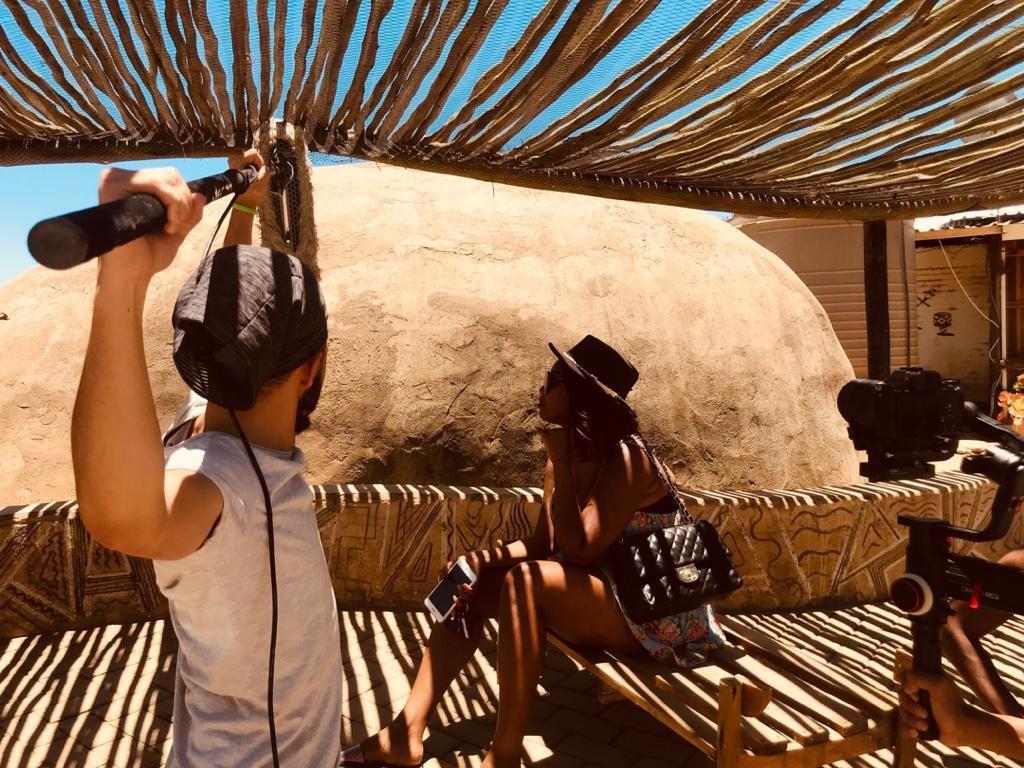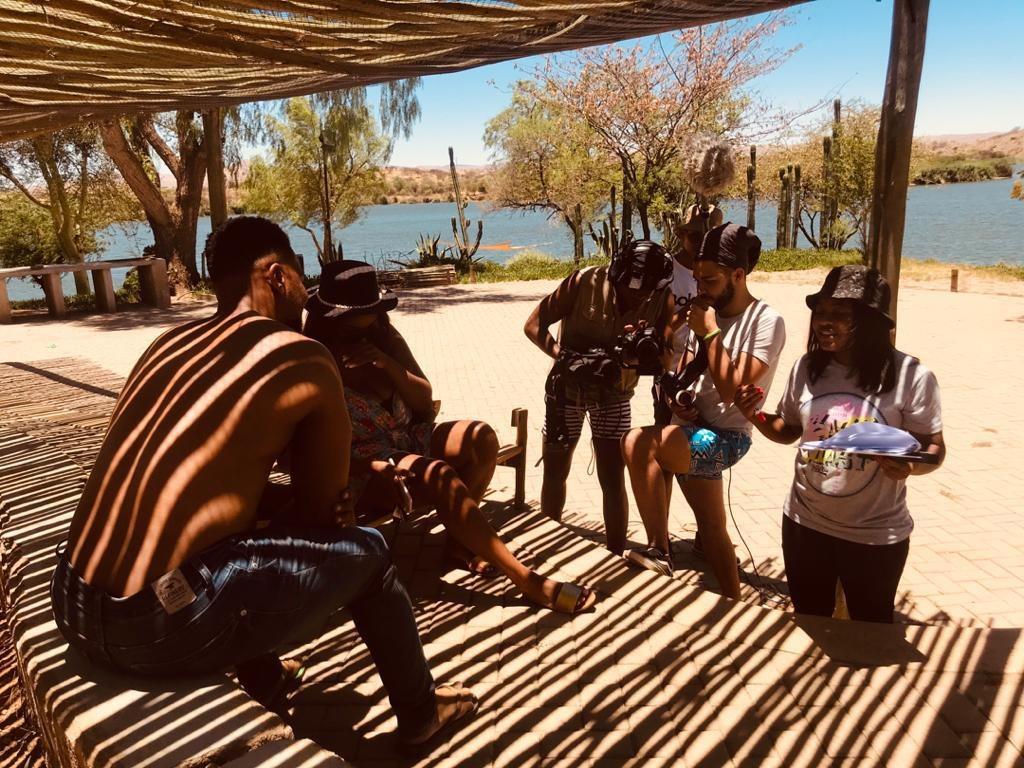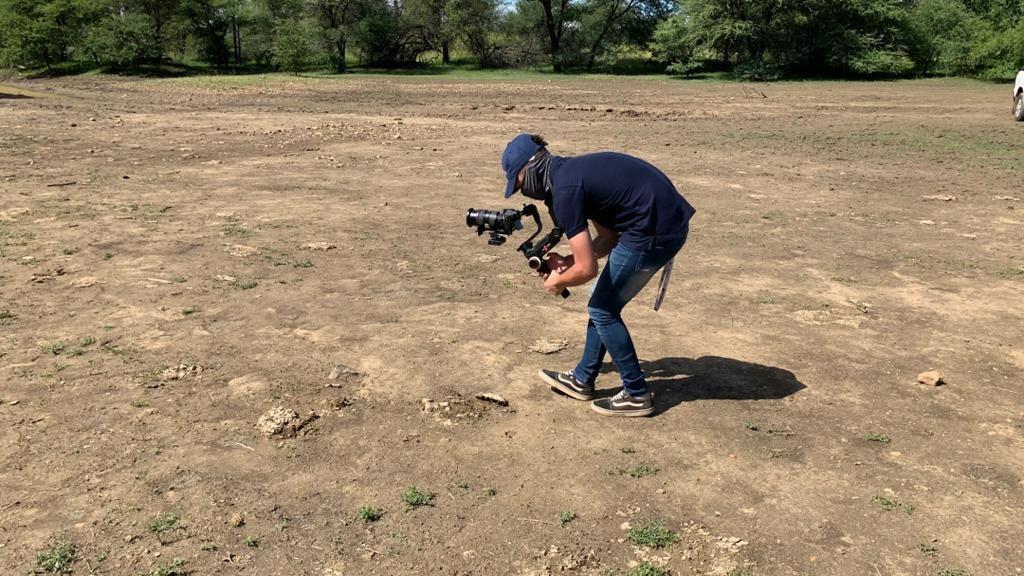Where talent is brewed
Telling our stories
Jeanette Diergaardt Hilma Sheehama, Riejhaat Wolhuter and Shona Ngava are back from the talent factory to make waves in the Namibian film industry.
Qualified talent is what we need to tell the Namibian story. The MultiChoice Talent Factory is doing just that: breeding qualified, trained film professionals in the industry.
In October 2019 the journey of Hilma, Riejhaat and Shona started at the MultiChoice Talent Factory based in Zambia. Becoming a MultiChoice Talent Factory graduate, according to Riejhaat, is as easy as signing up and taking a chance. In Shona’s opinion hard work, passion, dedication and discipline are what it takes. According to Shona, studying in a foreign country can be difficult, as one becomes homesick at times. For Hilma, the training course is a hard work and you should be willing to learn a lot of new things.
The three are of the opinion that with a lot more funding the film industry in Namibia could go a long way. “The film industry in Namibia is actually far better than what we think. The only advice I can give is to corporates: they should invest more money in films and know the business behind these creatives in Namibia,” says Riejhaat.
Creating Magic
‘Okegumbo, Kegumbo’ is a short film created by the three of a village girl who lost her job due to Covid-19 and now has to go back home to face the reality of forgetting her culture. The short film can be found on ShowMax. The film has received positive feedback from various people from far as Egypt and South Africa.
“I think people are just happy the film was made in one of the local languages and has a Namibian flavour to it,” says Hilma.
The team is working on more ideas that they have pitched to various people already. More is definitely on the way. About working with the two men, Hilma says, “I would absolutely love to always work with RJ and Shona, I think over the years we have grown to trust and we work really well together. But I would also like to work with other industry professionals and learn from them too.”
The MultiChoice Talent Factory
The academy is an African initiative by Africans. The idea is to empower African storytellers with the right skills and know-how, ranging from theory to getting hands-on experience. From the many applications only 60 are chosen to join the academy. Students are taught about cinematography, editing, audio production and storytelling. Being the first of its kind in Africa, it spans over 13 countries. Academies are based in Kenya, Nigeria and Zambia. The MTF academies are fully accredited. There are intakes every year and the intakes for 2021 are already open.
The Process of Filmmaking
1. Development
The first step is the development of a script, be that an existing script, an adaptation of a book, or a brief story outline. During this process a script idea can be pitched to the director or film producer.
2. Pre-Production
This is the phase where you narrow down the options of the production. It is where all the planning takes place before the camera rolls and sets the overall vision of the project. During pre-production, location scouting takes place, as well as working out a budget and casting the actors.
3. Production
During this phase it is important to keep planning ahead of the daily shoot. The primary aim is to stick to the budget and schedule; this requires constant vigilance. Constant communication is needed between the location office, production company and distributers - everyone involved in making the movie a reality.
4. Principal Photography
This is when the camera rolls. It is nearly always the most expensive phase of film production because of actor, director and set crew salaries, as well as the cost of certain shots, props, and on-set special effects.
5. Wrap
The period immediately after shooting ends. It is when we strike (dismantle) the set and clear the location. Everything must be returned in good order to suppliers and there must be a full set of records of the shoot.
6. Post-Production
This stage starts when principal photography ends, but they may overlap. The bulk of post-production consists of reviewing the footage and assembling the movie – editing.
7. Distribution
Once the film is completed, it must be distributed. This is how producers make their money back and a considerable amount of time and energy will be invested to secure the right distribution deals for their projects. The film will go into the cinema and/or be distributed via various platforms such as Showmax, DStv, and Netflix. In the past, before the internet, distribution of a film was a lot more time-consuming.
A day in the life at MultiChoice Talent Factory Academy in Zambia
Click on the QR Code to have a look what a day in the life of Shona was like during his time in Zambia: https://www.youtube.com/watch?v=myJzfpA2wZw











Comments
My Zone
No comments have been left on this article